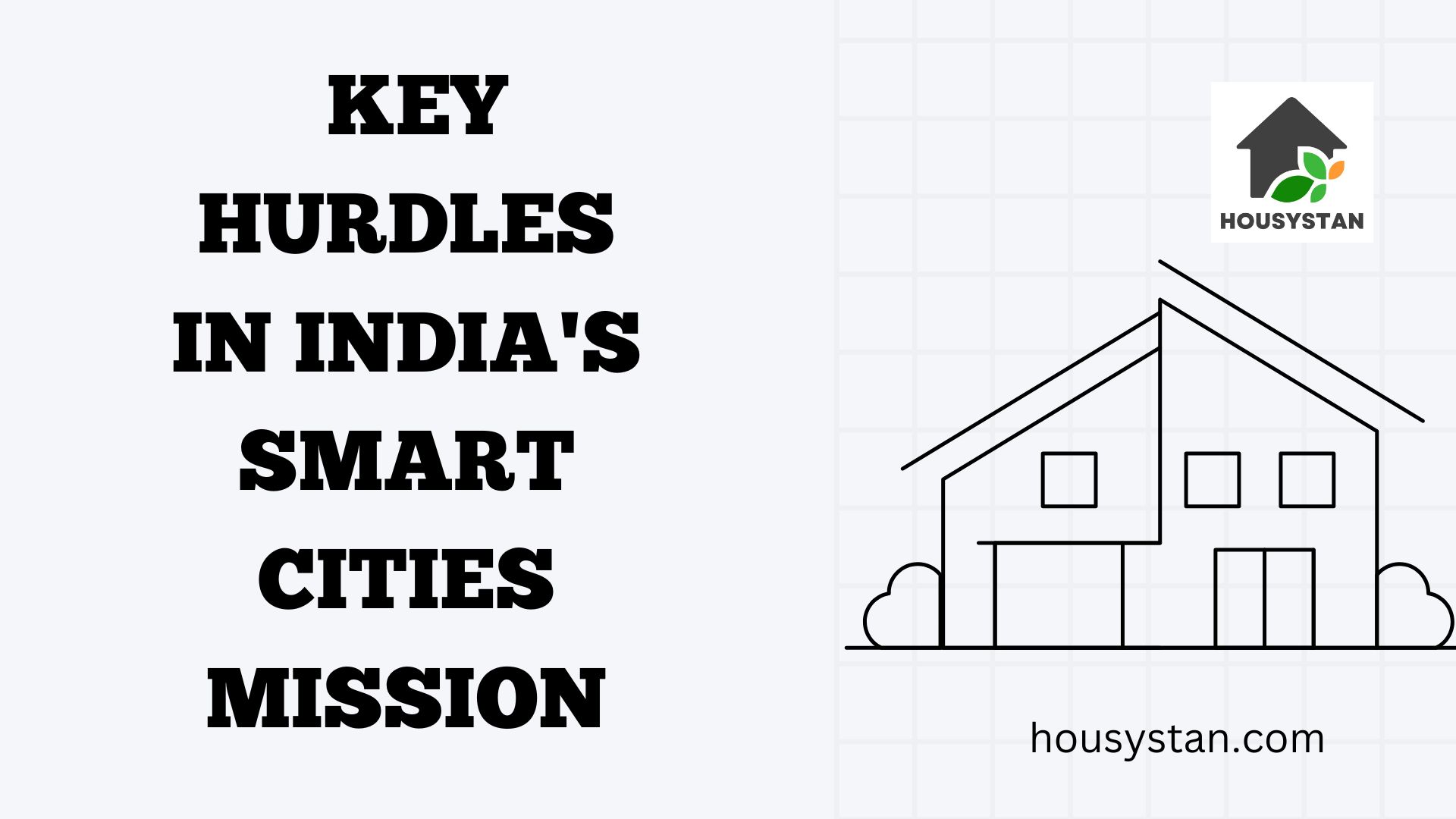Key Hurdles in India's Smart Cities Mission
Read latest blogs and articles from Housystan

The Information mentioned here was last updated on:
29/1/2026Key Hurdles in India's Smart Cities Mission
India's ambitious Smart Cities Mission, launched in 2015, aims to transform 100 cities into modern urban centers with improved quality of life, robust economic progress, and sustainable environments. With a focus on technologies such as data analytics, the Internet of Things (IoT), and digital solutions, the mission strives to address urban challenges by enhancing infrastructure and governance. However, transforming these cities into smart ones is not without its challenges. Below, we explore the key hurdles faced by India's Smart Cities Mission.
Understanding the Challenges in Infrastructure Development
- Verified Tenants/Buyers
- Unlimited Property Listing
- Zero subscription/charges fee
1. Outdated Infrastructure:
- Many Indian cities still rely on infrastructure that dates back decades, making the integration of new technologies complex and costly.
- Updating basic utilities such as water supply, sewage systems, and electricity grids is a prerequisite but poses logistical and financial challenges.
2. Urban Sprawl and Planning Issues:
- Rapid urbanization has led to unplanned settlements, which complicates systematic development efforts.
- Lack of comprehensive urban planning often results in disjointed development, which smart city projects must correct.
Financial Constraints
1. Funding and Budgeting:
- The cost of developing a smart city could be quite high, requiring substantial financial resources.
- Limited funding from central and state governments means cities often depend on public-private partnerships, which are sometimes difficult to establish.
2. Inefficient Utilization of Funds:
- Funds allocated may not always be efficiently utilized due to bureaucratic hurdles or corruption.
- Lack of financial audits and accountability can lead to money being misspent or underutilized.
Technology Integration Issues
1. Lack of Technological Expertise:
- There's a significant shortage of skilled professionals who can develop, implement, and maintain smart city technologies.
- Training stakeholders and government officials in new technologies is a slow process.
2. Data Privacy Concerns:
- The successful implementation of smart solutions requires massive data collection, raising concerns over data privacy and security.
- Policies and frameworks ensuring data protection are still being developed and enforced.
Governance and Policy Hurdles
1. Bureaucratic Delays:
- Procedures involving multiple government agencies can be slow and inefficient, stalling project implementation.
- Simplifying processes and enhancing inter-departmental communication are essential but challenging tasks.
2. Regulatory Challenges:
- Existing legal and policy frameworks might not align with the needs of smart technologies, requiring new regulations or amendments.
- Delays in regulatory approvals slow down project timelines significantly.
Community Engagement Challenges
1. Lack of Public Awareness:
- Many residents are unaware of what a smart city entails or how it benefits them, leading to low engagement levels.
- Public education campaigns and transparent communication can help bridge this awareness gap.
2. Resistance to Change:
- Some communities and stakeholders resist changes in urban landscapes and lifestyles promoted by smart city projects.
- Gaining public trust and support through participatory approaches is crucial but complicated.
Environmental and Sustainability Concerns
1. Sustainability Issues:
- Ensuring that smart city projects are environmentally sustainable poses additional technological and planning challenges.
- Initiatives must focus on renewable energy, green building practices, and reducing carbon footprints.
2. Climate Resilience:
- With urban areas being particularly vulnerable to climate change impacts, smart cities must integrate resilience planning into their frameworks.
- Developing infrastructure that withstands climate-related disruptions is both costly and complex.
Solutions and Way Forward
1. Strengthening Public-Private Partnerships:
- Encouraging private investment through incentives and clear policy frameworks can help fund smart city projects.
- Collaborating with tech companies for expertise and technological investments.
2. Capacity Building:
- Investing in capacity building through training programs for government officials and tech professionals.
- Cross-sectoral partnerships for skills development and knowledge sharing.
3. Digital Inclusion and Accessibility:
- Initiating programs that ensure digital access for all segments of the population to reduce the digital divide.
- Focusing on affordable and accessible digital solutions that benefit all citizens.
4. Robust Policy Frameworks:
- Developing comprehensive policy frameworks for privacy, data security, and urban planning.
- Regular updates and adherence to international standards in smart city guidelines.
5. Community-Centric Approaches:
- Involving community members in decision-making processes to ensure inclusivity and local relevance.
- Educating the public on smart city projects through workshops and informational campaigns.
By addressing these key challenges and leveraging innovative solutions, India's Smart Cities Mission can move towards its goal of creating livable, sustainable, and technologically advanced urban environments. Understanding these hurdles and working collaboratively to overcome them is a crucial step in ensuring the success of this transformative initiative.